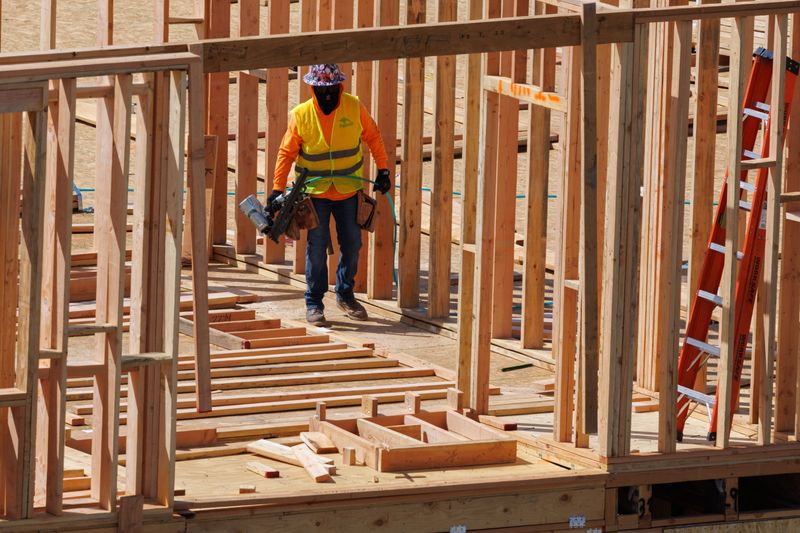WASHINGTON (Reuters) – U.S. labor costs recorded their smallest increase in more than three years in the third quarter amid cooling wage growth, indicating that inflation was firmly on a downward trend.
The employment cost index (ECI), the broadest measure of labor costs, rose 0.8% last quarter, the Labor Department’s Bureau of Labor Statistics said on Thursday. That was the smallest gain since the second quarter of 2021 and followed an unrevised 0.9% increase in the second quarter.
Economists polled by Reuters had forecast the ECI climbing 0.9%. Labor costs gained 3.9% in the 12 months through September, the smallest rise since the third quarter of 2021, after advancing 4.1% in the year through June. Annual labor cost growth has slowed from 4.3% in September 2023.
The ECI is viewed by policymakers as one of the better measures of labor market slack and a predictor of core inflation because it adjusts for composition and job-quality changes. The Federal Reserve has a 2% inflation target.
Government data on Wednesday showed core inflation rising at the slowest pace in nearly a year in the third quarter. The Fed last month launched its policy easing cycle with an unusually large half-percentage-point interest rate cut, the first reduction in borrowing costs since 2020.
The Fed’s policy rate is now set in the 4.75%-5.00% range, having been hiked by 525 basis points in 2022 and 2023. The Fed is expected to lower rates by 25 basis points next Thursday.
Wages and salaries, which account for the bulk of labor costs, rose 0.8% last quarter after advancing 0.9% in the second quarter. They increased 3.9% on an annual basis, slowing from the April-June quarter’s 4.2% advance.
When adjusted for inflation, overall wages gained 1.4% in the 12 months through September after climbing 1.2% in the April-June quarter. That helped to boost consumer spending and support economic growth last quarter.
Private sector wages and salaries rose 0.8%. They increased 3.8% in the 12 months through September after rising 4.1% in the second quarter. State and local government wages rose 1.0% last quarter after increasing 1.1% in the April-June quarter. They advanced 4.6% in the 12 months through September.
Benefits for all workers rose 0.8% after increasing 1.0% in the second quarter. They increased 3.7% in the 12 months through September after advancing 3.8% in the April-June quarter.

